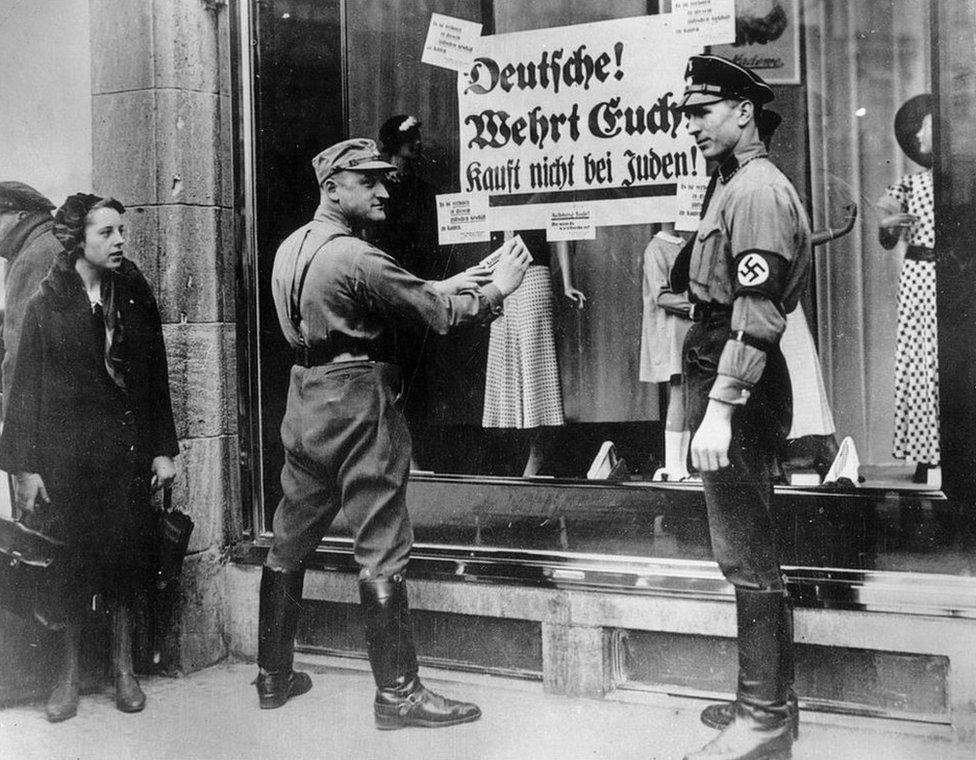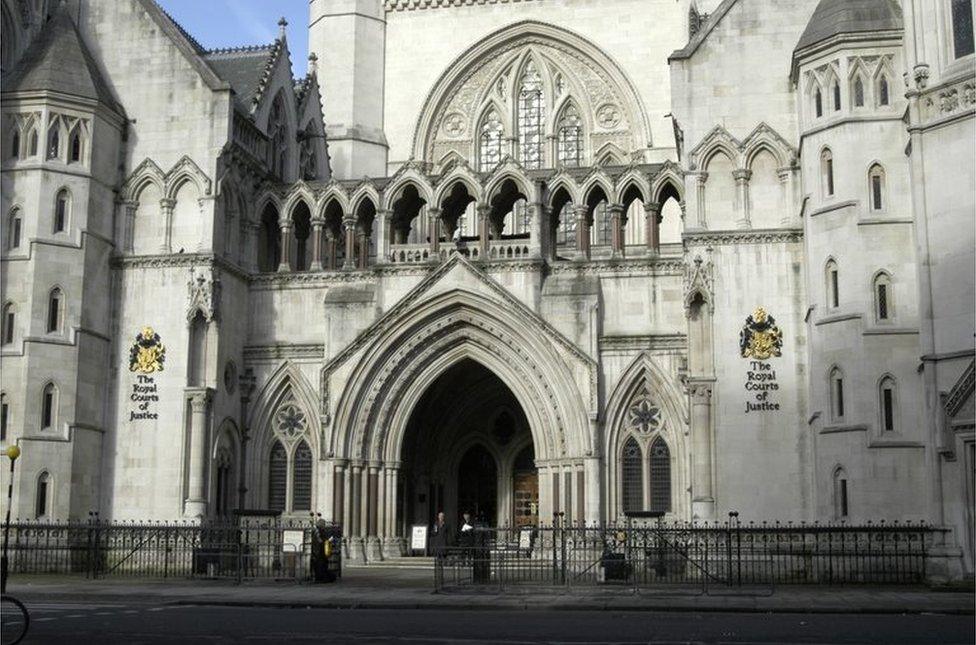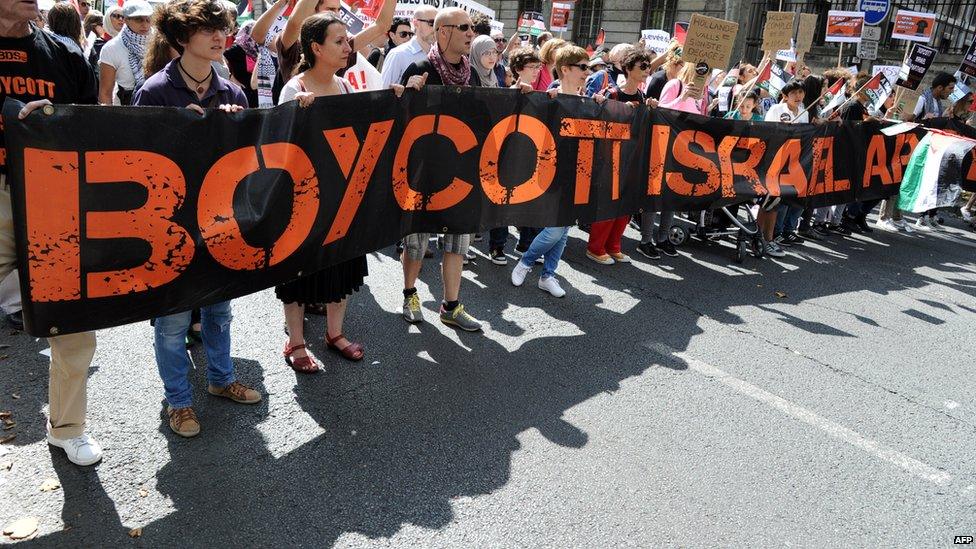Leicester council urged to end 'anti-Semitic' boycott
- Published

Leicester City Council introduced a boycott of any produce originating from Israeli settlements in the West Bank
A council has been urged to end an "anti-Semitic" boycott of goods from Israeli settlements in the West Bank - after ministers condemned such bans.
Leicester City Council began its boycott in November 2014, saying it opposed "the continuing illegal occupation" of Palestinian territory.
Jewish Human Rights Watch is taking legal action against the council.
It said the authority should end the boycott following this week's announcement by the UK government.
'Divisive and offensive'
"Since November, we have been encouraging Leicester to rescind the motion and spare local ratepayers a growing legal expense, which could eventually reach some £200,000," the organisation said in a statement.
"We hope that this announcement will encourage Leicester and other councils to rescind these divisive and offensive motions that harm community relations and instead get back to focusing on delivering local services."

Jewish Human Rights Watch has likened Leicester City Council's actions to the boycott of Jewish shops in 1930s Nazi Germany
The organisation said the boycott was "anti-Semitic" and likened it to the boycott of Jewish shops in 1930s Nazi Germany.
However, Councillor Mohammed Dawood, who introduced the motion, said it was "not an attack on a particular faith", and was instead "about a particular policy".
The BBC asked Leicester City Council whether it was reconsidering its boycott following the government's announcement.
A spokesperson said: "Because we are subject to legal proceedings, it wouldn't be appropriate for us to comment further."

Is Leicester City Council's boycott unlawful?

A High Court judge has granted permission for a judicial review
Jewish Human Rights Watch is challenging Leicester City Council's boycott through a judicial review
The organisation has argued the council's motion is unlawful because it breaches the Local Government Act 1988 and the Equality Act 2010
High Court Judge Mrs Justice Elisabeth Laing said both of the claims were arguable and granted permission for a judicial review
No date has yet been set for the judicial review

The government is issuing new guidance to public authorities stating that locally-imposed boycotts are "inappropriate" unless formal legal sanctions or embargoes have been put in place by the government.
The guidance warns boycotts risk breaching a World Trade Organization agreement signed by both the EU and Israel, which requires equal treatment for suppliers from all signatory nations.
Those who decide to go ahead with a boycott risk being taken to court and fined, the government warned.
The Cabinet Office said boycotts could "undermine good community relations, poison and polarise debate, weaken integration and fuel anti-Semitism", as well as hinder the UK's export trade and harm international relationships.

The Boycott, Divestment and Sanctions (BDS) Movement attempts to increase economic pressure on Israel by encouraging a boycott
Cabinet Office Minister Matt Hancock gave details about the new guidance on Monday, while on a trade mission in Israel.
He said: "We have introduced new, clearer guidelines to make it crystal clear. The existing guidelines weren't fully working."
Labour leader Jeremy Corbyn has criticised the move, saying it would have outlawed council action against apartheid South Africa.
"People have the right to elect local representatives able to make decisions free of central government political control," he said.
"That includes withdrawal of investments or procurement on ethical and human rights grounds."
- Published15 February 2016

- Published3 October 2015

- Published24 August 2015

- Published21 July 2015
